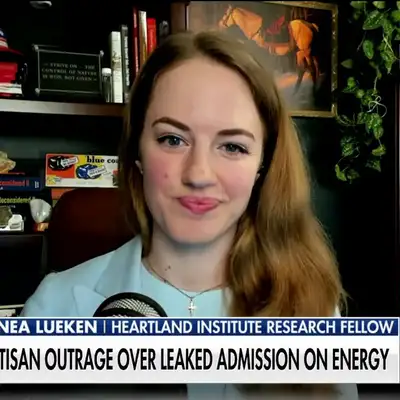The assassination of Charlie Kirk was an act of evil. It was also undoubtedly a political act spawned out of the dark heart of modern leftism. We live in a country in which prominent media outlets suggested Charlie brought his public slaying upon himself. In today's media and political environment, anyone who vigorously differs from leftist ideology and Democratic Party talking points is painted as a fascist, a threat to democracy, a domestic terrorist -- or, as President Biden once put it -- a threat to "the very soul of this nation." This is the political environment in which the killing of Charlie Kirk occurred.
In just the past 13 months, radicals have attempted two assassinations on President Trump and killed one of his most-prominent and successful advocates. Earlier than that, an avowed Marxist gunned down a health insurance CEO and was celebrated for it by many on the left. Radical leftists got very close to pulling off assassinations of Supreme Court justices Brett Kavanaugh and Amy Coney Barrett. And let's not forget the radical left Bernie Bro who tried to murder a baseball field full of Republicans just a few years ago.
This must stop. And it starts with the Democratic Party putting an end to its eliminationist rhetoric, expelling from its party and offices anyone who encourages or excuses violence, and leading the march back to respectful debate. For a start, they can do away with the "both sides" lie. And they can also stop saying that every election and policy debate they lose is not the dawn of fascism.
On Episode #510 of The Heartland Institute's In the Tank Podcast, we will talk about the life and legacy of Charlie Kirk, mourn his loss together, and try to give each other hope that America's tolerance for this madness is soon coming to an end.
Creators and Guests




What is In The Tank?
The weekly flagship podcast from The Heartland Institute features in-depth policy discussions connected to current news. Host Donald Kendal leads the discussion with the usual crew of Heartland Institute Vice President Jim Lakely, Socialism Research Center “Commissar” Justin Haskins, Editorial Director Chris Talgo, and others at this national free-market think tank. The entertaining and informative discussions often hit topics such as the environment, energy policy, Big Tech censorship, the troubling rise of socialism, globalism, health care, education, that state of freedom in America and around the world, and much more.
This podcast is also available as part of the Heartland Daily Podcast, the “firehose” of all the organization’s podcasts that take deep and entertaining dives into public policy.
